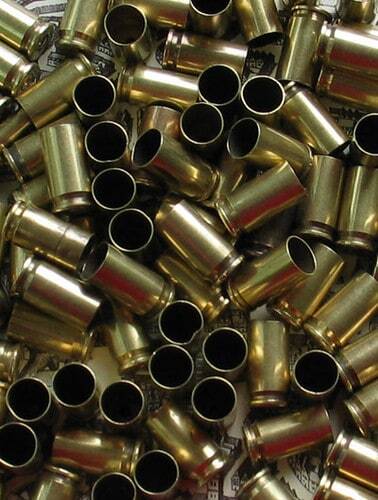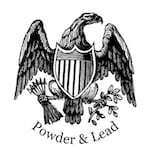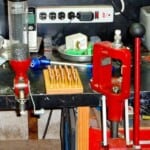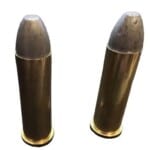
Several ways to obtain brass for reloading
To obtain brass for reloading ammunition, there are several options you can consider (if you're just getting started in reloading, start here first):
- Purchase new brass: You can buy new brass casings from various sources, such as local gun shops, sporting goods stores, or online retailers specializing in reloading supplies. Look for brass casings specifically designed for reloading purposes. One of my favorites for this is starlinebrass.com.
- Save your own brass: If you already shoot firearms, you can save the spent brass casings from your own shooting sessions. Make sure to segregate and sort them by caliber for easier reloading. This option requires regular shooting and may not provide a sufficient supply for high-volume reloading.
- Visit shooting ranges: Many shooting ranges have designated areas where shooters can collect their own brass or where they discard used casings. Some ranges may allow you to collect brass for personal use. Ask your friends to do the same for you. Be sure to check with the range rules and seek permission before collecting any brass for reloading.
- Scrap yards: Scrap yards or metal recycling centers might have brass casings available. You can inquire if they sell or give away spent brass casings. It's worth noting that you may need to clean and inspect them thoroughly to ensure they are suitable for reloading.
- Online marketplaces and forums: Explore online platforms, such as forums, classified ads, or reloading-specific marketplaces. You may find individuals selling or trading brass casings. Exercise caution when purchasing from individuals and ensure you are dealing with reputable sellers.
- Reloading clubs and associations: Connect with local reloading clubs or associations in your area. Members may have surplus brass or can guide you to reliable sources for obtaining brass casings.
Remember, when obtaining brass for reloading, it's important to ensure that the casings are in good condition and suitable for reloading. For a broader look at the benefits and trade-offs, see our breakdown of the pros and cons of reloading ammunition. Check for signs of damage, such as splits, cracks, or excessive wear. Some imperfections on brass can be fixed during the reloading process.
Used brass can also be stretched or deformed, and rifle brass will eventually need to be trimmed to length. To some extent deformed or stretched brass can be reconditions but be aware that resizing these cases improperly can create reliability issues. Another crucial factor is understanding the number of times brass has been fired. Each reloading and firing cycle stresses the metal, weakening it over time, and it eventually becomes unsafe for further use.
Another crucial factor is understanding the number of times brass has been fired. Each reloading and firing cycle stresses the metal, weakening it over time, and it eventually becomes unsafe for further use.
Next, consider the type and caliber of the brass. Not all brass is the same; different calibers and manufacturers may have variances that affect reloading performance. Ensure you have the correct dies and equipment for the specific brass you're collecting. Additionally, be aware of Berdan-primed brass, which is difficult and often impractical to reload due to its design, compared to Boxer-primed brass.
Lastly, cleanliness is essential. Brass must be thoroughly cleaned before reloading to remove grime and residue that can affect reloading precision and potentially damage your equipment. Consider getting a vibratory tumbler, drum tumbler, or ultrasonic cleaner to clean your brass for reloading. Properly inspect and clean the brass before reloading to ensure safe and reliable ammunition. Make sure you're using a shell casing that matches the caliber that you intend to reload.
If you want a place to ask questions, read about other reloader’s experiences, and participate in forums try these:
If you know of any forums or sites that should be referenced on this listing, please let us know here.




